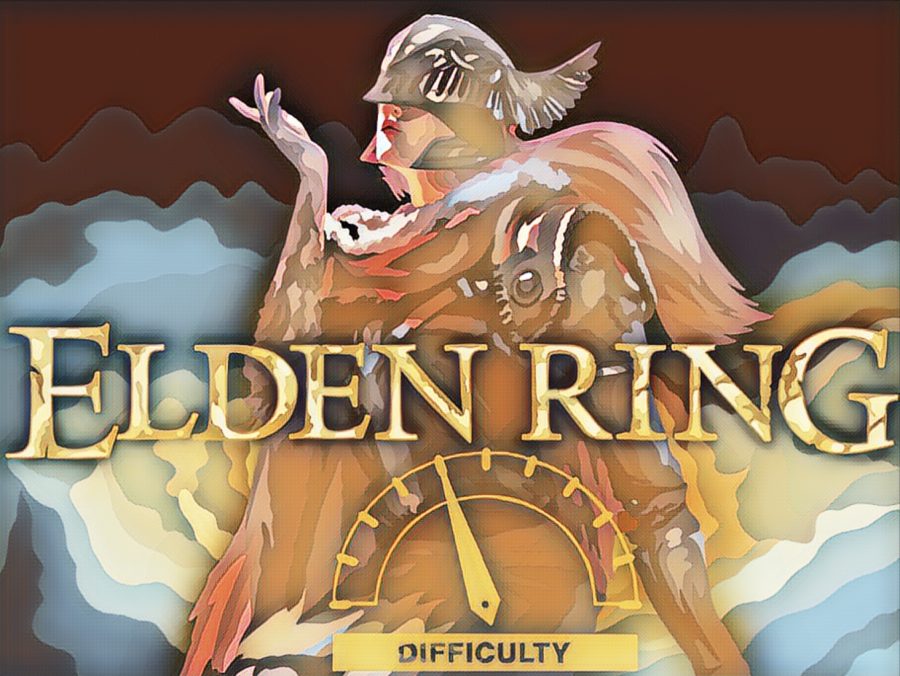Elden Ring’s impact on difficulty in video games
While many would claim the new release of “Elden Ring” to be a difficult game, its commercial success showcases the fact that the gaming community craves for more challenging games, and video game companies should aim to satisfy this need.
May 29, 2022
Upon “Elden Ring” releasing to commercial and critical success, could other game studios follow note and not shy away from developing more difficult games? On top of that, in what ways does “Elden Ring’s” difficulty compare to other FromSoftware games? Does it lean more towards being tough, or simply fair vs. unfair?
As of March 2022, “Elden Ring” has sold over 12 million units worldwide. Considering the game had a release date of Feb. 25, 2022, this is incredibly impressive to sell that many units in less than a month. The game has also received tens across the board and currently has a 96% on Metacritic. This could show that a game being difficult doesn’t make it less marketable.
Many series are certainly due to become a bit more difficult. While not every game needs to be as testing as “Elden Ring,” it shouldn’t be so easy to the point where it’s mindless. Some of Nintendo’s games are a bit guilty of this, including some of the Mario games from the Wii to Wii U era.
However, the greatest perpetrator of this is the Kirby series. While some Kirby games have been great with creative 2D platformers, most of the time they feel just too easy. If enough compelling new ideas are introduced it can balance out and still make the game interesting, but the most recent 2D Kirby game, “Kirby Star Allies” felt like it had no meat on its bones—it was also one of the easiest Kirby games, which is saying a lot. The game was also very short, only lasting around five hours, which isn’t usually much of a problem, but this only showcases how simple the game was.
Fortunately, Kirby’s next installment, “Kirby and the Forgotten Land” was less simplistic and introduced quite a few new ideas. This can mainly be owed to it being the series’ first jump to 3D. Nevertheless, the point still remains that a lot of video games—especially ones that don’t have many new ideas—could use a raise in difficulty. Hopefully, “Elden Ring’s” success will make game developers more interested in doing so.
But how does “Elden Ring’s” difficulty contrast with other games by FromSoftware? It’s (of course) very difficult, but where “Elden Ring” differs is how it’s less punishing and more encouraging for the player to experiment with the different classes. Unfortunately, towards the end of the game, enemies begin to do ludacris amounts of damage and unleash frightening combos which makes players progress feel insignificant. It also forces players to choose from only a couple of classes. While the game still leans more towards being a fair type of difficulty, the endgame juxtaposes this.
With how critically acclaimed “Elden Ring” was and how well it sold, it gives hope for more companies to be interested in making games more difficult. While its difficulty wasn’t perfect, “Elden Ring” has certainly left an impact on the future of gaming.

















Chase • Jan 20, 2023 at 12:37 pm
Although Elden ring is hard for some the game is much easier then the games before it since there are completely broken weapons that can one shot most normal mobs and kill bosses in less then a minute making the games difficulty very underwhelming for a souls series game but this doesn’t make the game any less enjoyable. i recently picked up dark souls 1 and 3 since i already beat 2 and elden ring and they are much more punishing and unforgiving with much less quality of life such as longer areas and not being able to tp through different parts of the map in dark souls 1 making it harder to traverse the world